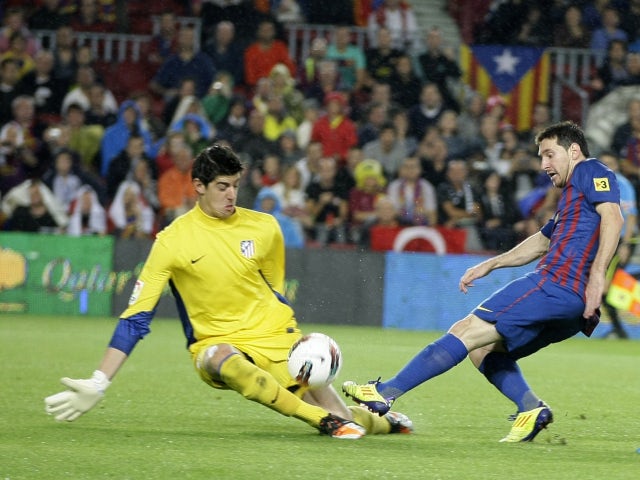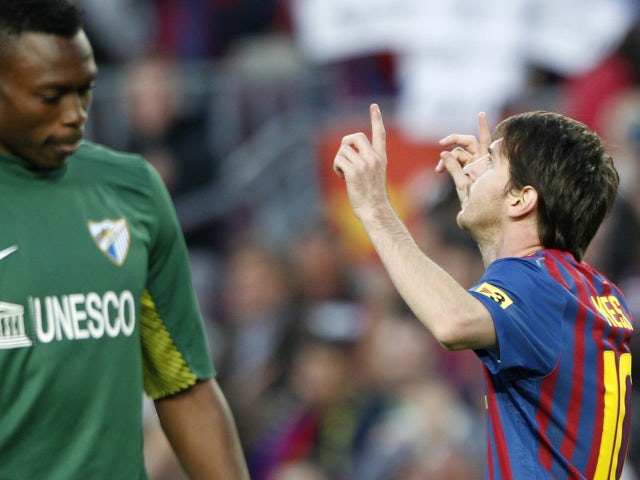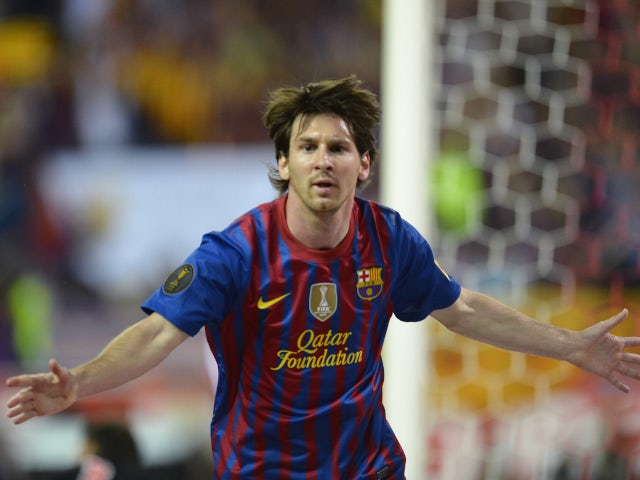Scoring 73 goals during a single season is supposed to be confined to youth level. The perception is that netting on so many occasions highlights that a prospect is ready to take the next step towards the professional game, whether that be from a local junior team or while already part of an established academy setup. What is not meant to happen is recording such figures at the highest level of the sport for one of the biggest teams on the planet.
Nevertheless, that is exactly what Lionel Messi achieved for Barcelona during the 2011-12 campaign. Seventy-three goals from 57 starts and three substitute outings in six different competitions. The sheer amount of strikes takes away from the fact that the Argentine maestro also accumulated 31 assists, 15 of which came away from La Liga.
Despite picking up four pieces of silverware, Barcelona missed out on the La Liga title by nine points and a place in the Champions League final, remarkable when taking into account the form of their star man. However, while 2011-12 was Messi's year, this was not just a period of positives for the then three-time world player of the year.
 © Reuters
© Reuters
Even before La Liga had commenced, Messi already had four goals to his name, netting three goals during a two-legged Supercopa Espana showdown with Real Madrid and getting on the scoresheet during the UEFA Super Cup triumph over Porto.
That set the tone for what was to come and although Messi failed to score in two of Barcelona's first five fixtures in Spain's top flight, hat-tricks against Osasuna and Atletico Madrid helped him to eight goals during that period.
Throughout the season, Messi scored three of more goals in 10 matches, a standout statistic which he deservedly earned praise. However, on the flip side, Messi's first 13 goals in La Liga that season were all registered at Camp Nou, with his first on his travels not coming until November 6.
 © Reuters
© Reuters
That was not the case in the Champions League, however. Messi scored six times in away encounters at BATE Borisov, Viktoria Plzen and AC Milan during the group stages, a suggestion that his blip on away territory on the domestic scene was merely a blip.
During the final two months of 2011, Messi went throughout somewhat of a quiet spell in La Liga. Just three goals came from five outings, which included failing to get on the scoresheet against Real Madrid at the Bernabeu. Although Blaugrana still prevailed by a 3-1 scoreline, the personal disappointment would have irked Messi at a time when he was going head-to-head with Real's counterpart Cristiano Ronaldo.
At the turn of the year, Messi had scored 29 of his 73 goals, and the chance to reboot over Christmas resulted in him netting twice in a Copa del Rey tie against Osasuna on January 4, his only two goals in that competition before the final in May.
 © Reuters
© Reuters
Through January and February, a further 11 efforts were recorded in the league, most notably a four-goal haul in a 5-1 destruction of third-placed Valencia. Earlier on the same week, Messi had contributed a goal and an assist away at Bayer Leverkusen in the Champions League, which set up the attacker to produce his most noteworthy individual outing of the season in the reverse fixture.
A double during the opening 45 minutes meant that Leverkusen were not competitive after the break, allowing Messi to add a further treble before the full-time whistle. While Messi's goals ultimately took games away from the opposition, it is worth noting that a significant chunk of his record-breaking tally came with matches already over as a contest.
In his remaining four Champions League outings of the season, Messi produced a tie-winning performance in the second leg of the quarter-final tie with Milan, but he failed to score in the other three games, famously missing from the penalty spot at a crucial period against Chelsea in the last four.
Back in La Liga, Messi was at his very best, and he concluded the league campaign by scoring in 11 of the final 13 matches. Again though, he drew a blank against Real on April 21, a game which saw Los Blancos prevail by a 2-1 scoreline and move ever closer to claiming their first La Liga crown in four seasons.
 © Reuters
© Reuters
Real were confirmed as champions on May 2, the same night on which Messi broke Gerd Muller's record for scoring 67 goals during the 1972-73 campaign. He did so with his penultimate hat-trick of the season against Malaga, unable to fully appreciate the achievement given the adulation being experienced in Spain's capital.
Most likely motivated to end the campaign on a high, Messi netted all four goals during a commanding win over Espanyol in the derby, with his final strike being added in the Copa del Rey final against Bilbao. From an individual standpoint, it capped the finest nine-and-a-half months of his career, but there are a number of what-ifs and blemishes which remain.
As well as failing to score in six matches against Real and Chelsea, Messi also missed out on home games against Sporting Gijon and BATE through suspension and being rested respectively, encounters which he would have fancied himself to only add more strikes to his tally.
Only the harshest of critics will find faults with such a consistent showing of ruthlessness in the final third. However, Messi's failings in some high-profile fixtures that campaign ultimately led to the departure of Pep Guardiola, and there is an argument that it undermines his countless moments of brilliance over that period.








